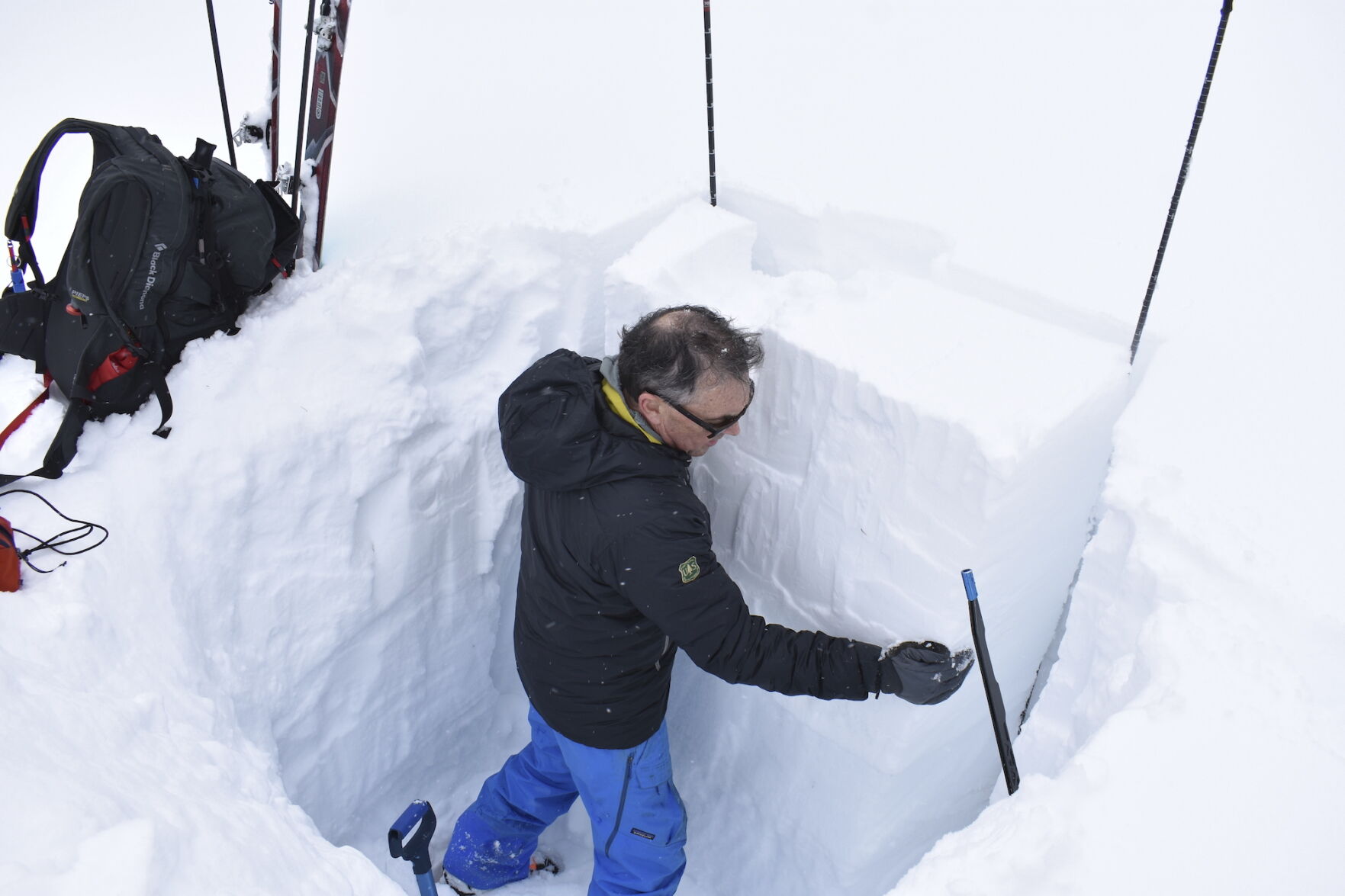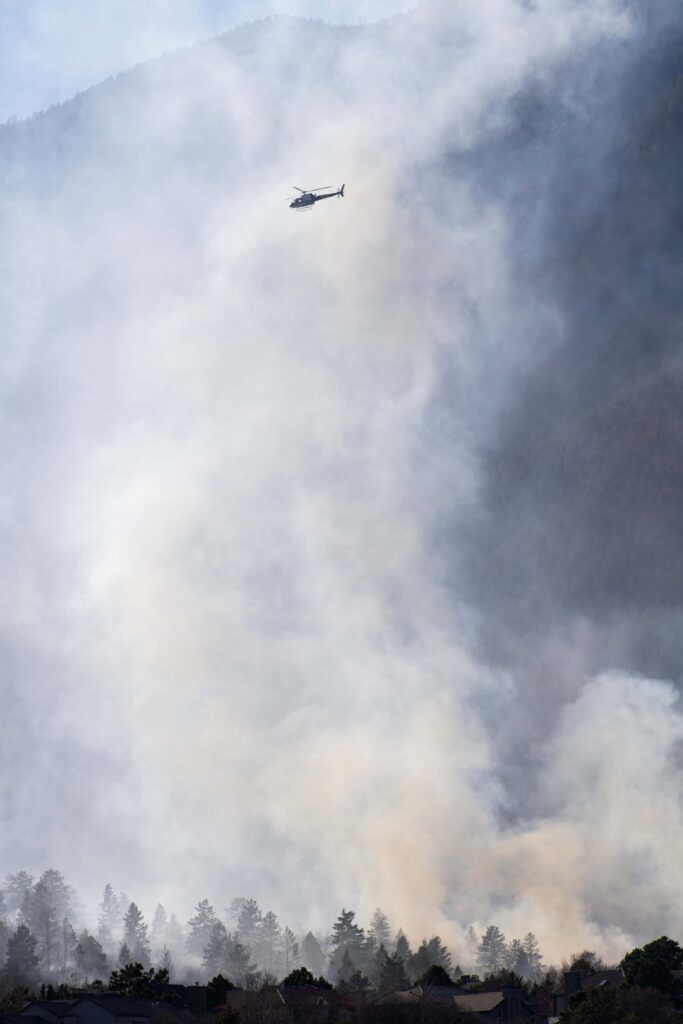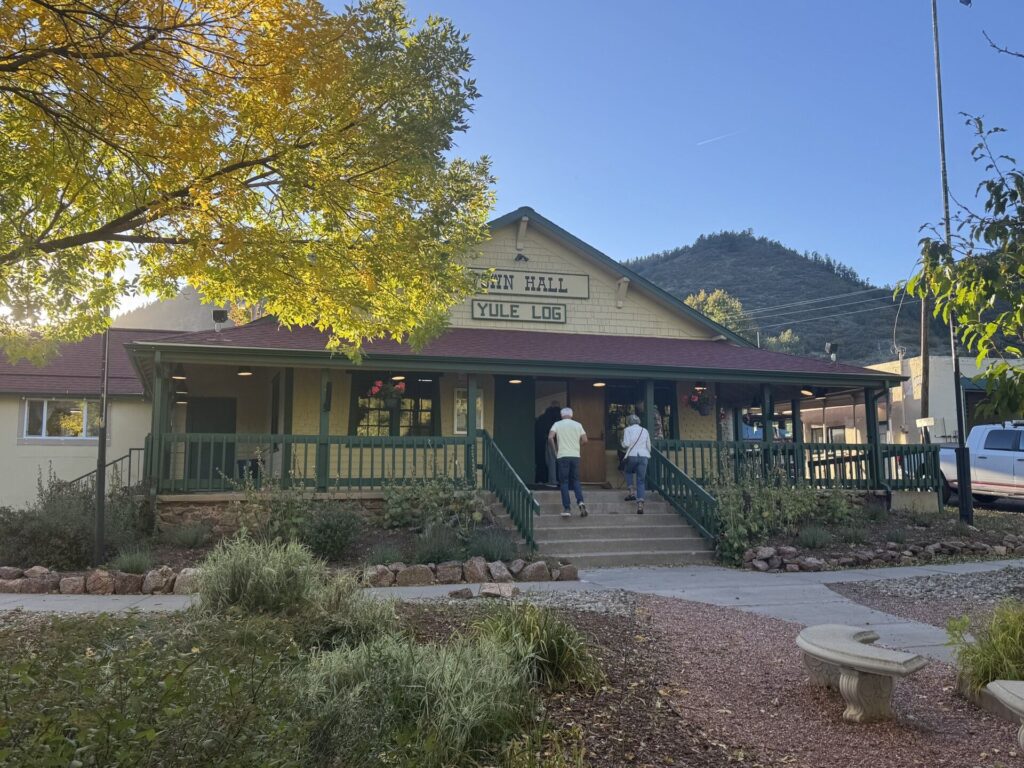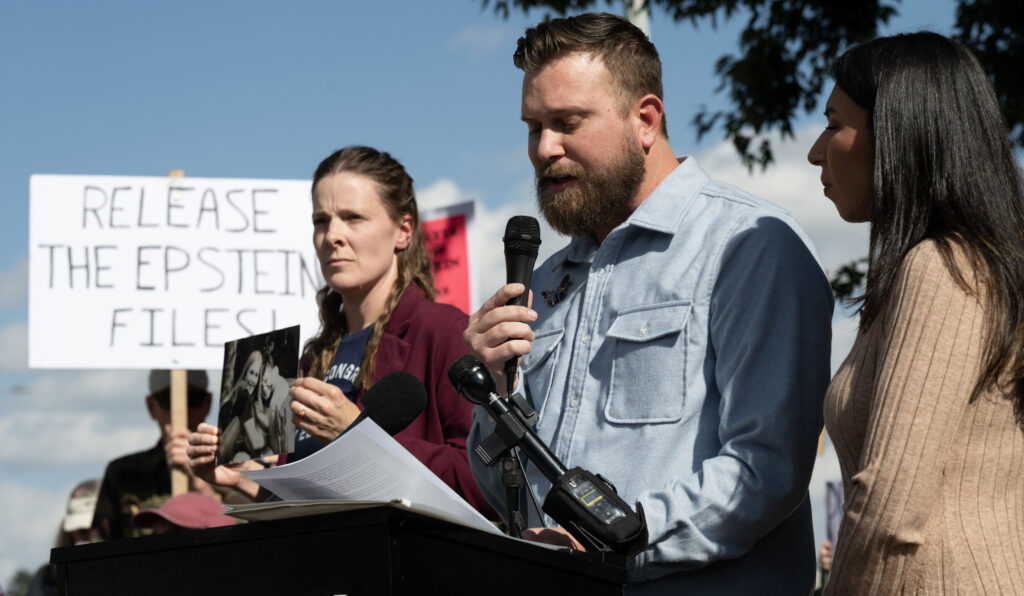Avalanche forecasters try to curb deaths amid backcountry surge | OUT WEST ROUNDUP

MONTANA
Avalanche forecasters try to curb deaths amid backcountry surge
COOKE CITY — The day after a Minnesota man survived an avalanche while snowmobiling in Montana’s backcountry, government forecasters posted details of the near-tragedy as yet another cautionary tale.
Avalanche safety specialists say their job has become more difficult in recent years as climate change brings extreme weather, and surging numbers of skiers, snowboarders and snowmobilers visit backcountry areas since the COVID-19 pandemic.
Shifting weather patterns due to climate change further complicate safety efforts, and four people already have died this year in snowslides in Wyoming, Colorado, Idaho and California.
Experts say the potential for hazardous avalanches has set in for the winter for many mountain ranges. Scant snowfall across much of the U.S. West early in the season created an unstable layer at the bottom of the snowpack. That dangerous condition is likely to persist for months, said Doug Chabot, director of the Gallatin National Forest Avalanche Center.
Colorado continues to lead nation in avalanche danger; last winter saw near-record number of deaths
Chabot is among avalanche specialists scattered across the country bringing increased attention to the dangers of avalanches and teaching people how to stay safe.
On Saturdays at a backcountry warming hut near Cooke City used by snowmobilers, avalanche educators give basic rescue lessons including how to use avalanche beacons — transmitters that send a signal rescuers can use to find victims.
Despite the growing risks, the U.S. avalanche death rate has stayed relatively constant in recent years. Experts attribute that to better forecasting and more people educating themselves about the dangers in the mountains.
NEW MEXICO
Lawmakers advance bill to cut income taxes, rein in tax break
SANTA FE — A bill that would reduce personal income taxes across the earnings spectrum and collect more taxes on investment income passed the Democratic-led New Mexico state House on Feb. 7.
The broad package of tax changes won House endorsement on a 48-21 vote and now moves to the Senate for consideration.
State government would forgo about $105 million annually overall through adjustments to personal income tax rates and brackets while collecting more taxes on investment income.
All income tax payers would see a decrease, with the greatest savings in dollar terms among middle-income earners, according to an analysis by the state Taxation and Revenue Department.
Annual income tax would decrease by $16, or 12%, to $136 for a couple with taxable income of $8,000, the agency said. A wealthier couple with an annual taxable income of $400,000 would save about $553, or 2.8%, on annual taxes of $20,042.
Gov. Jared Polis signs measure increasing earned income tax credit, the first law of 2024 session
The bill from Democratic state Rep. Derrick Lente, of Sandia Pueblo, also includes tax credits and deductions aimed at shoring up the medical workforce in remote rural areas and easing the fiscal burden on child care and preschool providers.
A statement from House Democrats says the bill reduces a cap on capital gains tax exemptions to $2,500 — limiting a tax break “that overwhelmingly benefits the state’s highest earners.”
Current rates range from 1.7% on taxable income under $4,000 for individuals to 5.9% on annual income over $157,000.
Navajo, Zuni tribes to implement restoration plan for Fort Wingate
ALBUQUERQUE — Two Native American tribes, the state of New Mexico and the U.S. Army have finalized a restoration plan for a former military installation near Gallup.
Explosives and munitions were stored and disposed of at Fort Wingate until it closed in 1993.
The Navajo Nation, Zuni Pueblo and the New Mexico Office of Natural Resources Trustee reached an agreement with the federal government in March 2022 to settle claims that land, water and cultural resources were negatively impacted by hazardous substances at the site.
Colorado announces agreement with Washington state tribes to obtain more wolves
The site now is undergoing environmental cleanup before the tract of land can be transferred to the U.S. Bureau of Indian Affairs to benefit the two tribes. Both tribes have long-standing historical ties to the lands in and around Fort Wingate, which sits on about 24 square miles. The land is almost entirely surrounded by federally owned or administered lands, including national forest and tribal lands.
More than $1.1 million from the settlement is to be used on restoration projects, according to the plan released earlier this month. Those include restoring parts of the Cibola National Forest and conserving habitat for the Zuni bluehead sucker, a fish species listed as endangered in New Mexico and that is culturally significant to Zuni Pueblo.
NEBRASKA
Bill would hire hacker to probe state’s computer systems
LINCOLN — One state lawmaker wants Nebraska to take measures to protect it from cyberattacks. His answer? Hire its own hacker.
State Sen. Loren Lippincott presented a bill on Feb. 8 to the legislature’s government committee that would give the Nebraska State Patrol $200,000 to hire “an ethical hacker.” The hacker would spend his or her days trying to break into the state’s computer network, as well as election equipment and software, to find any vulnerabilities in those systems.
Lippincott said he got the idea from a nephew of his who did similar work. The lawmaker’s staff did not find other states that have hired independent hackers, although Missouri has hired a company that employs “white hat hackers” to provide that service.
Federal judge advances lawsuit against Griswold over non-disclosure of dead voter data
His bill also would allow hiring a security company that provide hackers to find weaknesses in the state’s system.
Lippincott presented the bill on the heels of FBI Director Christopher Wray’s warning that Chinese government hackers are targeting critical U.S. infrastructure, including water treatment plants, the electrical grid and transportation systems.
The Nebraska bill’s hearing was also held on the same day that the U.S. Cybersecurity and Infrastructure Security Agency launched a program aimed at boosting election security in the states and after a recent cyberattack on government operations in Georgia that has created some elections challenges ahead of that state’s March presidential primary.
MONTANA
Man convicted of killing eagles sentenced on gun charges
BILLINGS — A Montana felon previously convicted of killing eagles to sell their parts on the black market was sentenced to three years in federal prison on Jan. 24 for related gun violations.
U.S. District Judge Susan Watters in Billings sentenced Harvey Hugs, 60, after he pleaded guilty in September to being a felon in possession of firearms. Prosecutors said the Hardin, Montana, man used the guns to shoot federally protected eagles over more than a year and then sold the birds’ parts to an informant for profit.
Hugs was sentenced last June in Rapid City, South Dakota, to three years in federal prison after being convicted by a jury for trafficking golden eagle feathers, wings and tails in violation of the Bald and Golden Eagle Protection Act.
Colorado moves to protect Native American students' right to wear traditional regalia
The two sentences will be served concurrently, according to court documents. Hugs public defender in the Montana case, attorney Edward Werner, did not immediately respond to telephone and email messages seeking comment.
In 2012, Hugs was sentenced in federal court in Montana to six months in custody for coordinating the illegal purchase of eagle feathers, tails and wings and two hawk tails, court documents show.
It’s illegal to possess, use, or sell eagles or their parts in the U.S., though there are exceptions for cultural institutions and Native Americans using them in religious ceremonies. Federal officials operate a clearinghouse that makes eagle feathers and other parts available to tribal members, authorized zoos and museums.












